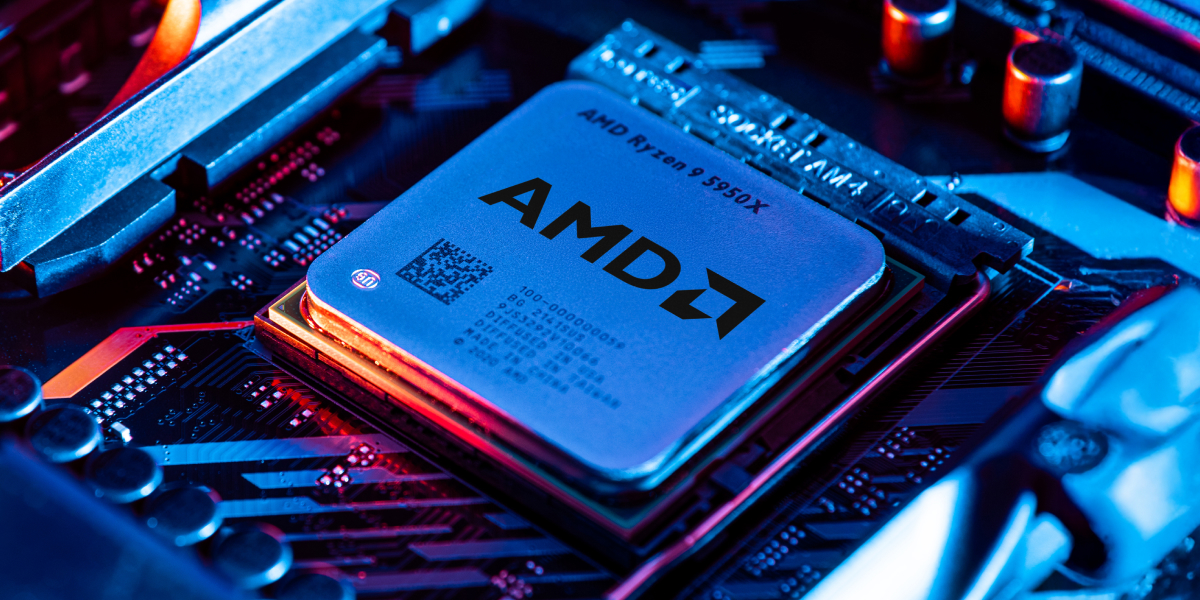A Crypto node in the blockchain ecosystem is a computer or server that connects to the network, maintains a complete copy of the blockchain ledger, and performs essential tasks to support the decentralized operation of the network.
Role and functions of nodes
Maintaining a copy of the blockchain ledger
Crypto nodes store a complete copy of the blockchain ledger, which contains records of all transactions that have ever occurred on the network. This ledger is continuously updated as new transactions are validated and added to the blockchain.
Validating transactions
Crypto nodes play a crucial role in validating transactions on the blockchain. When a transaction is broadcasted to the network, it needs a Crypto node to verify its validity by checking various parameters, such as digital signatures and transaction history. Valid transactions are then included in a block and added to the blockchain.
Relaying information
Nodes propagate validated transactions and blocks to other nodes on the network. This process ensures that all nodes have access to the latest information and helps in achieving consensus across the network.
Participating in consensus mechanisms
Nodes participate in consensus mechanisms, such as Proof of Work (PoW) or Proof of Stake (PoS), depending on the blockchain protocol. Through consensus mechanisms, nodes collectively agree on the state of the blockchain, including which transactions are valid and which blocks should be added to the chain.
Supporting network security
Nodes contribute to the security of the blockchain network by validating transactions and maintaining a distributed copy of the ledger. The decentralised nature of nodes helps prevent single points of failure and makes it difficult for malicious actors to manipulate the blockchain.
Executing smart contracts (if applicable)
In blockchain networks that support smart contracts, nodes may also execute and validate the code within smart contracts. This enables the automation of contractual agreements and the execution of decentralised applications (DApps) on the blockchain.
Types of Crypto nodes

Cryptocurrency nodes come in various types, each serving unique functions in blockchain networks. Full nodes store complete copies of the blockchain ledger, ensuring decentralisation and security.
Light nodes offer reduced resource requirements for users, while masternodes provide additional features like instant transactions and privacy enhancements.
Full nodes
Full nodes in Cryptocurrency networks maintain complete copies of the blockchain ledger, validating transactions and blocks. They ensure decentralisation, security, and transparency by independently verifying the entire transaction history.
Full nodes play a crucial role in consensus and serve as the foundation of decentralised networks like Bitcoin and Ethereum.
Light nodes (SPV nodes)
Light nodes, also known as SPV (Simplified Payment Verification) nodes, download only block headers instead of the entire blockchain network. They rely on trusted full nodes for transaction validation, reducing resource requirements.
Light nodes offer faster synchronization and are suitable for mobile and lightweight applications, maintaining a balance between efficiency and decentralisation.
Mining nodes
Mining nodes in Cryptocurrency networks are specialised nodes responsible for validating and adding new transactions to the blockchain network through the process of mining. They compete to solve complex mathematical puzzles, confirming transactions and securing the network.
Mining nodes earn rewards in the form of newly minted coins and transaction fees for their efforts.
Validator nodes
Validator nodes in blockchain networks are responsible for validating transactions and proposing new blocks to the network. They play a crucial role in achieving consensus, ensuring the integrity and security of the blockchain.
Validator nodes typically follow specific consensus mechanisms, such as Proof of Stake or Practical Byzantine Fault Tolerance (PBFT).
Validator nodes stake Cryptocurrency as collateral to participate in the consensus process. They are rewarded with transaction fees and newly minted coins for validating and proposing blocks to the network.
How do Crypto nodes work?
As mentioned previously, nodes play a crucial role in the function of blockchain networks, and they are various types of nodes that fulfill different purposes. Here is a breakdown of how they work.
The process of transaction verification
- Transaction broadcast: a user initiates a transaction, broadcasting it to the network.
- Verification: nodes receive the transaction, validating sender’s balance, digital signatures, and compliance with network rules.
- Consensus: valid transactions are grouped into blocks by miners or validators, achieving consensus on the next block.
- Addition to blockchain: verified blocks are added to the blockchain, confirming the transaction’s completion.
Achieving consensus
Nodes in a blockchain network agree on valid transactions and blocks through consensus mechanisms like Proof of Work or Proof of Stake. They independently validate transactions, then collectively validate blocks by solving cryptography or reaching an agreement based on staked assets, ensuring network integrity and security.
Adding blocks to the blockchain
After consensus, validated transactions are organised into blocks. Miners or validators compete to solve cryptographic puzzles, verifying transactions which creates new blocks. Once a block is successfully created, it is added to the blockchain, completing the process and enabling the continuation of transactions on the network.
Engaging with the blockchain: running your own node
Benefits of running a node
Several blockchain networks offer rewards to individuals who run nodes. Some notable examples include:
- Ethereum 2.0 (ETH): validators in the Ethereum 2.0 network earn rewards in the form of newly minted ETH and transaction fees by staking their coins and participating in the consensus mechanism.
- Tezos (XTZ): Tezos employs a Proof of Stake consensus mechanism where token holders can delegate their coins to validators and earn rewards for participating in block creation and validation.
- Cardano (ADA): Cardano uses a Proof of Stake algorithm where stake pool operators and delegators can earn rewards by participating in the network consensus and block validation process.
- Algorand (ALGO): Algorand rewards users who hold ALGO tokens in their wallets and participate in the network consensus by staking their tokens and validating transactions.
These are just a few examples, and many other blockchain networks offer similar reward mechanisms to incentivise participation and maintain network security.
Beyond the fact that you receive rewards for your participation, you are also contributing to the health and functionality and decentralisation of the network.
Requirements for running a node
To run a Cryptocurrency network node, you typically need:
- Hardware: a computer or server with sufficient processing power, memory, and storage capacity to handle the requirements of running a node. The hardware specifications may vary depending on the specific blockchain network and the type of node you intend to run.
- Software: node software provided by the blockchain network’s developers, which you install and run on your hardware. This software enables your node to connect to the network, download the blockchain ledger, validate transactions, and participate in the consensus mechanism.
- Internet connection: a stable and reliable internet connection is essential for your node to communicate with other nodes on the network, receive and broadcast transactions, and synchronise with the latest blockchain data.
- Knowledge and skills: a basic understanding of blockchain technology, networking concepts, and system administration is helpful for setting up and maintaining a node. Depending on the complexity of the node software and configuration, you may need to troubleshoot issues or perform regular maintenance tasks.
- Stake (if applicable): in some blockchain networks that use Proof of Stake consensus mechanisms, such as Ethereum 2.0 or Cardano, you may need to stake a certain amount of cryptocurrency as collateral to participate in the consensus process and earn rewards as a validator.
Overall, running a node requires a combination of hardware, software, internet connectivity, and technical knowledge to effectively contribute to the decentralisation and security of the blockchain network.
The evolving landscape of Cryptocurrency nodes
Technological innovations and their impact
Developments such as sharding, layer-2 scaling solutions like the Lightning Network nodes, and advancements in consensus mechanisms are enhancing scalability, efficiency, and decentralisation.
These innovations are shaping the future of blockchain networks and their role in the digital economy.
Future trends in node development
Future trends in node development include improved scalability through sharding and layer-2 solutions, increased interoperability between blockchain networks, and advancements in consensus mechanisms for enhanced security and efficiency.
Additionally, decentralised storage and computation capabilities may become more prevalent, shaping the evolution of blockchain ecosystems.
Conclusion
Cryptocurrency nodes are indispensable for maintaining the integrity and functionality of blockchain networks. They validate transactions, ensure decentralisation, and contribute to network security. The evolving landscape of nodes is driven by technological innovations like sharding and layer-2 scaling solutions, shaping the future of blockchain ecosystems.
As node development progresses, improved scalability, interoperability, and security will continue to define the decentralized digital economy. By running nodes, individuals not only contribute to network health but also engage in the dynamic evolution of blockchain technology, fostering innovation and decentralisation in the digital age.
Do Crypto nodes make money?
Yes, but this always depends the network they are a node on and the scale of their operation.
What is the difference between a node and a blockchain?
Nodes are crucial parts of the blockchain network, which are used to confirm transactions and store a copy of the blockchain.
How do I run a Crypto node?
You will need the necessary hardware, software and internet connection to do so.
What are nodes in Crypto?
Nodes in cryptocurrency are individual computers or servers that participate in the network.
How do you become a Crypto node?
To become a Crypto node, you need to set up the necessary hardware, install the required node software, ensure a stable internet connection.
How many Crypto nodes are there?
The exact number of Crypto nodes depends on the specific Cryptocurrency and how they're counted. Here's a breakdown for Bitcoin, there are around 58,781 reachable Bitcoin nodes at the time of writing.
The content provided here is for informational purposes only. It is not intended as personal investment advice and does not constitute a solicitation or invitation to engage in any financial transactions, investments, or related activities. Past performance is not a reliable indicator of future results.
The financial products offered by the Company are complex and come with a high risk of losing money rapidly due to leverage. These products may not be suitable for all investors. Before engaging, you should consider whether you understand how these leveraged products work and whether you can afford the high risk of losing your money.
The Company does not accept clients from the Restricted Jurisdictions as indicated in our website/ T&C. Some services or products may not be available in your jurisdiction.
The applicable legal entity and its respective products and services depend on the client’s country of residence and the entity with which the client has established a contractual relationship during registration.




